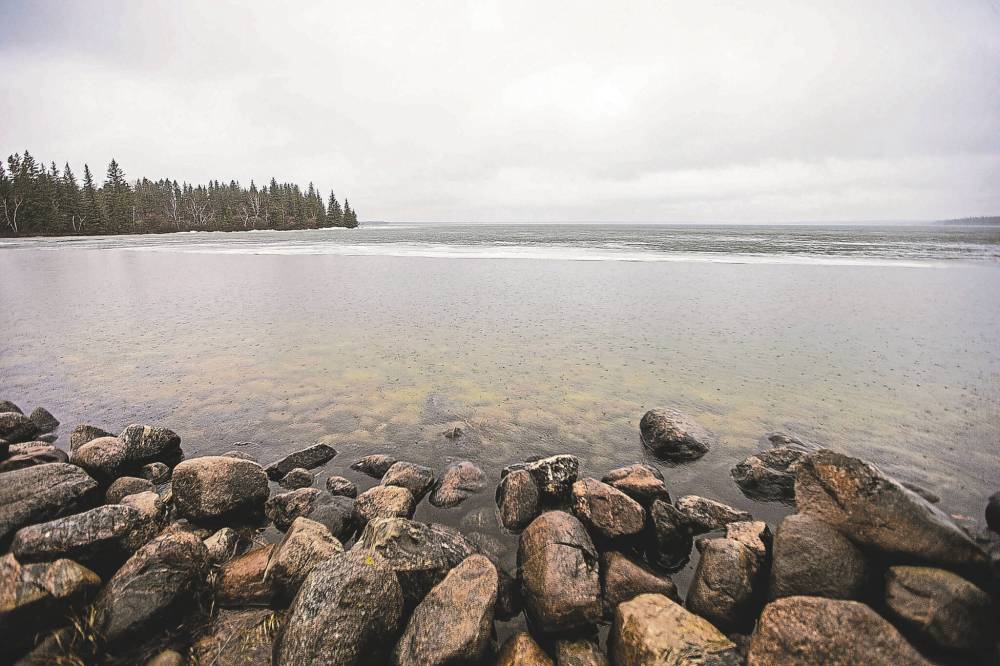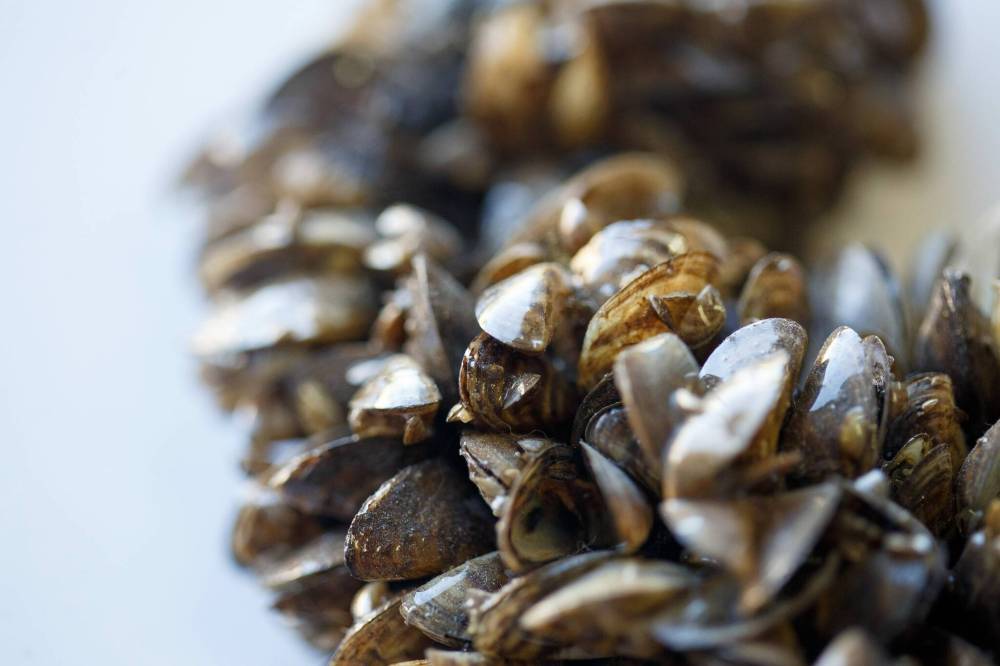Zebra mussels confirmed in Manitoba’s Clear Lake
Advertisement
Read this article for free:
or
Already have an account? Log in here »
To continue reading, please subscribe:
Monthly Digital Subscription
$0 for the first 4 weeks*
- Enjoy unlimited reading on winnipegfreepress.com
- Read the E-Edition, our digital replica newspaper
- Access News Break, our award-winning app
- Play interactive puzzles
*No charge for 4 weeks then price increases to the regular rate of $19.95 plus GST every four weeks. Offer available to new and qualified returning subscribers only. Cancel any time.
Monthly Digital Subscription
$4.99/week*
- Enjoy unlimited reading on winnipegfreepress.com
- Read the E-Edition, our digital replica newspaper
- Access News Break, our award-winning app
- Play interactive puzzles
*Billed as $19.95 plus GST every four weeks. Cancel any time.
To continue reading, please subscribe:
Add Free Press access to your Brandon Sun subscription for only an additional
$1 for the first 4 weeks*
*Your next subscription payment will increase by $1.00 and you will be charged $16.99 plus GST for four weeks. After four weeks, your payment will increase to $23.99 plus GST every four weeks.
Read unlimited articles for free today:
or
Already have an account? Log in here »
Hey there, time traveller!
This article was published 21/11/2023 (776 days ago), so information in it may no longer be current.
Aquatic invasive zebra mussels have been found in Riding Mountain National Park’s Clear Lake.
Despite ongoing efforts to keep the freshwater pests out of northern Manitoba, preliminary test results from samples collected throughout the summer indicated the presence of their environmental DNA, the federal government said in a news bulletin Monday.
A resulting inspection by Parks Canada staff found more than one live zebra mussel in the area of Clear Lake’s boat cove.
SUPPLIED Parks Canada officials will meet with various government and First Nations representatives to discuss Clear Lake’s (pictured above) fate next year.
Parks Canada officials will meet with federal, provincial and municipal government representatives and leaders from Keeseekoowenin Ojibway First Nation, which is located south of Riding Mountain (some 100 kilometres north of Brandon), to discuss next steps.
“What is it we can do, what should we do, what’s feasible and what’s really off the table,” Dameon Wall, Parks Canada’s Wasagaming-based external relations manager for Riding Mountain, said Tuesday.
Boating season is over and the cove (the lake’s main launch site) is closed to the public.
“It’s far too early to tell at this time what, if any, changes could come to the use of Clear Lake next year. We really are going to let the best available science guide us on this,” Wall said.
There is no known way of removing zebra mussels from a body of water once they’ve moved in, “Certainly not something the size of Clear Lake (some 30 square km), once they have become established,” Wall added.
It’s the first time live zebra mussels have been detected in the area, despite warning signs of their presence dating to summer 2022, when one water sample taken as part of Parks Canada’s aquatic invasive species program tested positive for environmental DNA.
Parks Canada amped up testing at multiple locations at the lake this summer, and required prospective boaters to undergo an inspection and tagging program prior to getting permission to put a trailered boat in the water.
Zebra mussels reproduce quickly and starve other aquatic life of natural resources (such as algae). They interfere with water intake and boating equipment and their sharp shells are dangerous for swimmers.
MIKE DEAL / WINNIPEG FREE PRESS FILES A clump of zebra mussels that formed around a string of Christmas lights. The invasive species has been found in Clear Lake despite restrictions imposed last summer to protect the body of water from an infestation.
The invasive species has been detected in several Manitoba bodies of water, starting with Lake Winnipeg in 2013.
Riding Mountain (established in 1933) is one of two national parks in Manitoba, and logged some 335,000 visitors last year.
Wapusk National Park (established in 1996) is a remote wilderness located south of Churchill and receives roughly 150 visitors a year, according to the federal government.
“We need to hear from the visitors to our park, from the businesses around us, from the community members that we live and work with…. We will have those conversations over the next couple of months and we will be letting people know what decisions are made in advance of the recreational season next year,” Wall said, adding Parks Canada’s priority is to protect the local ecological integrity.
“That is paramount in everything we do. Our job here is really about standing up for nature for future generations… but we’re not going to make any decisions rashly or without thinking through all the angles.”
katie.may@winnipegfreepress.com

Katie May is a multimedia producer for the Free Press.
Our newsroom depends on a growing audience of readers to power our journalism. If you are not a paid reader, please consider becoming a subscriber.
Our newsroom depends on its audience of readers to power our journalism. Thank you for your support.





